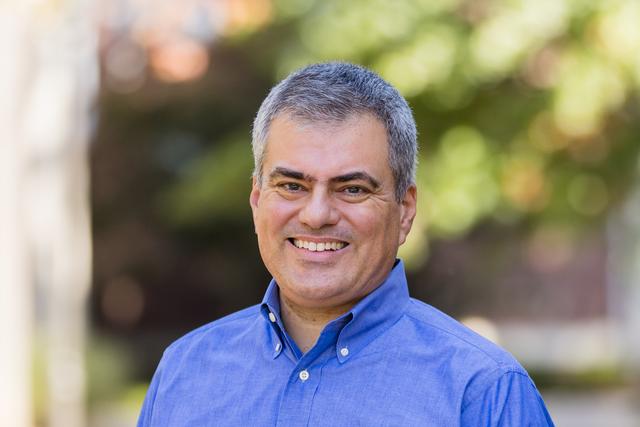
Michael Marino, professor of history, recently received top honors from the American Historical Association, winning the William and Edwyna Gilbert Award for the best article in a journal, magazine, or other serial on teaching history. The awards were announced at the AHA’s 137th annual meeting, which took place in San Francisco from January 4–7, 2024.
His winning article, “Rethinking Historical Thinking: How Historians Use Unreliable Evidence,” was originally published in The History Teacher in February 2022. The journal, published by the Society for History Education, is the most widely recognized journal in the United States devoted to more effective teaching of history in pre-collegiate schools, community colleges, and universities.
As chair of the history department and its secondary education coordinator, Marino is an authority in social studies pedagogy. Historical thinking, he explains, is a research trend that argues that more than learning names, dates, and facts, students studying history should replicate the cognitive skill-based things that historians do, such as analyzing evidence, creating and weighing arguments, and making conclusions.
In the paper, Marino looked at historians’ and graduate students’ ability to use potentially biased or inaccurate sources — memoirs, propaganda, oral histories, a painting — creatively compared to high school advanced placement students’ recognition of bias but limited ability to make compelling historical arguments with the same sources. He found that while high school students could identify why certain evidence could be inaccurate or unreliable, they weren’t able to find innovative ways to interpret the evidence like the grad students and historians could.
His paper posits that historians don’t reject evidence because of its biases or inaccuracies, but rather they consider how best to use it to create valid interpretations of the past — and students learning history should be taught the skills to do the same.
“If we want students to think like historians, we should teach the way historians actually think,” Marino says. Teaching students how to critically read primary sources, as well as how to critique and construct historical narratives are two strategies to get them thinking about the past like the pros.
“The fascinating study exemplifies Mike’s status as a teacher-scholar,” Cynthia Paces, immediate-past chair of the history department, says. “His courses on social studies methodology prepare TCNJ undergraduates to become teachers who can challenge high school students to take historical thinking to a higher level.”
— Emily W. Dodd ’03
